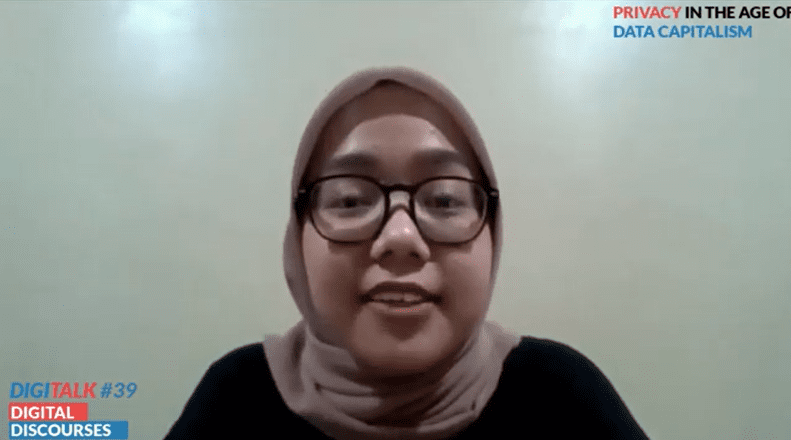
Yogyakarta, April 22nd 2020—Center for Digital Society or CfDS released the second video of the first Digitalk #39 session called ““The Commercial and Political Value of User Data”. The video’s duration is 25 minute and it discusses the topic of social media and political ads in Indonesia which was presented by Alia Y. Karunian. Alia started the session by discussing the scandal of Cambridge Analytica that happened in the start of 2018, a turning point for online privacy and data protection.
According to Alia, this scandal already significantly changed society’s mindset about data gathering, parties that use them, and the importance of consumer’s data usage. The scandal of Cambridge Analytica is one where there was an extraction of millions of Facebook users private data by Cambridge Analytica in the midst of the 2016 presidential election. This data was used to persuade or affect the perspective of voters through political ads in their social media based on politicians that buys the service of Cambridge Analytica.
The social media political ad is obviously different from political ad in conventional media such as those in the newspaper, television, and radio. When their target is taken into consideration, these two political ad have a significant difference. In conventional media, the political ads are aimed towards a bigger community, such as a national or regional community. Meanwhile for social media ads are aimed towards individual level through a political behavioral targeting process based on voter’s behavior and digital data. Then, there is a difference in terms of the public’s awareness of the targeted ads. In conventional ads, public awareness is high because the ads are distributed openly. Meanwhile, for social media political ads, public awareness is low. There is also a difference in the aspect of the distribution of the ad from both the media.
Moving on to the main topic which is social media and political ads in Indonesia. Alia elaborated the reality in Indonesia, starting from the amount and growth of social media user, the existence of political ads in social media, regulations about political campaign, and shortcomings of the current legislation. Alia also showed data that supported the material such as the data from 2019’s election political ads.
The discussion was then closed with several tips on how to prevent “profiling” cases that violates the law for political purposes. First, the government needs to have a comprehensive regulation. Second, the Election Committee (KPU in Indonesia) needs to adjust to the change of political campaign with new regulations. This adjustment should also include more relevant regulations to increase surveillance for political ads in all social media. Last but not least, social media platform needs to provide transparency and include privacy measures in their management. The recording of this session can be seen through CfDS UGM’s Youtube channel. For those that have some questions, Alia allows attendant to write it in the comment section of the video. The questions will be answered on Saturday, April 25th on 2pm.
